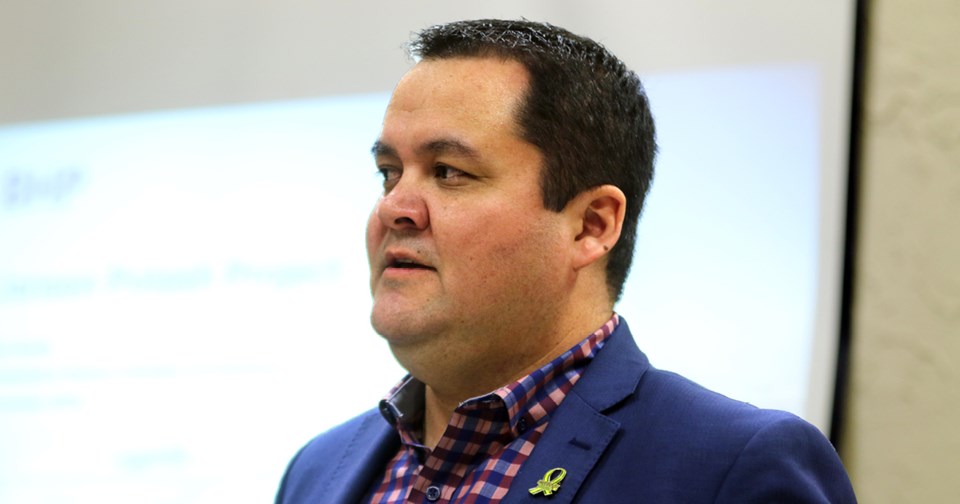For BHP, the Jansen potash mine project is still in the feasibility stage and requires approval from the company’s board of directors before it can move ahead.
That’s what Ken Smith, BHP’s corporate affairs manager for potash, told local businesspeople at a luncheon hosted by the Humboldt and District Chamber of Commerce Nov. 8.
The factors the board will look at before moving forward include the results of feasibility studies, the money of capital available to the company and what potash prices look like.
If the board gives its approval, it will take four years for the project to start producing, said Ken Smith, BHP’s corporate affairs manager for potash.
“If we get sanction, the execution phase, the construction phase, will require the build-up of the surface facilities such as the process plant, but it would also include the rail and power infrastructure and the port terminal facility on the west coast.”
It’s expected to cost $4.7 billion to complete the surface facilities. BHP has already spent $3.9 billion on the mine, which includes a 2,586 bed camp for workers, as well as service and production shafts, which go down one kilometre and 975 metres respectively. Those shafts reached their maximum depth in August.
“Over the coming months we’re actually going to demobilizing our shaft-sinking contractor and we will be bringing on board a new contractor that will construct what is known as the final liner for both the production and service shafts in Jansen,” Smith said.
The liner, made of a composite of steel and concrete, will prevent the waters of the Blairmore aquifer from seeping in the shaft and going down into the mine.
While BHP works on completing the shafts, it’s seeking a minority partner in the project, which would reduce capital costs of building the mine for BHP, share any risks, help secure transfer of the product from the mine to markets and provide expertise.
The Jansen mine would be BHP’s first entry into the potash industry. The company focuses on iron ore, copper, metallurgical coal and petroleum. Smith said BHP is interested in potash because there’s an anticipated 2.5 billion more people globally by 2050, which will mean that demand for potash for agricultural purposes will increase.
If the mine is given the go-ahead by the company, the initial stage would produce four million tons of potash per year. That would require four or five 177-car trains per week to ship the product to the west coast and one to two vessels per week to send it to destinations across the Pacific. There would be 500 full-time jobs, with 100 to 150 of those in an integrated operations control centre in Saskatoon and 300 to 350 locally.
The second stage would see production increase to eight million tons and provide work for 1,000 full-time jobs, with 800 to 850 of those local. That would make the Jansen mine the largest potash mine in the world.
“Jansen is a very exciting project for us and we think it’s an exciting project for the region,” Smith said.




